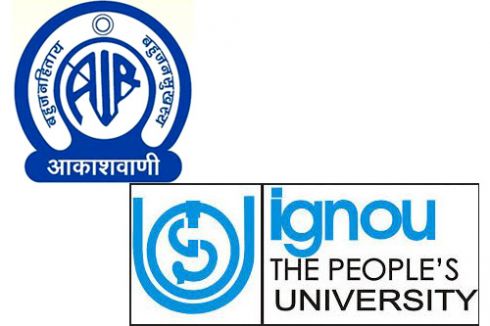
NEW DELHI: All India Radio sources expressed surprise at the launch of audio and video based web channels by the Indira Gandhi National Open University, pointing out that only 180 million persons in the country had access to the Internet.
Furthermore, these sources told radioandmusic.com that the Gyanvani and Gyandarshan channels of Doordarshan which had been shut down because of non-payment of dues by the University were aimed at catering to the lower middle class of which a majority did not have access to the web.
Earlier, AIR Director-General F Sheheryar had expressed the hope that the Gyanvani channel run by IGNOU on the AIR platform would be re-started after the University cleared its dues of more than Rs 21.6 crore. He said that the University had been sent several reminders before the action was taken. The channel run on the FM mode was closed on 30 September after the university failed to pay the outstanding dues for three years (for their 37 stations).
He also expressed surprise that the media had failed to take notice of the fact that Gyandarshan channel run by IGNOU on the Doordarshan platform had been off the air for almost ten months. These web-based channels can be accessed by the students directly from their homes at http://www.ignouonline.ac.in/Broadcast/without having to go to the Regional Centres or Local Study Centres.
IGNOU's webcast would be run on a pilot test run initially after which high quality audio-video programmes along with ‘live' interactions with subject experts in the field would be customised to meet the specific needs of the students in consultations with different schools of studies and Regional Services Division (RSD) of IGNOU.
Sheheryar in a press interaction last week had said IGNOU has been paying earlier under a memorandum of understanding with AIR and therefore there was no reason for this non-payment.
He stressed that being a public service broadcaster, AIR had to sustain itself as it could not depend solely on the government.
He said it had to be understood that Gyanvani and Gyandarshan were radio and television channels respectively run and owned by IGNOU and Prasar Bharati only provided the platform for the broadcasts.
He also denied that the closure of Gyanvani had left several thousand students high and dry as reported by the media, since the number of registered students did not number even one thousand.
Asked why AIR had not issued a press note in this regard either in the last week of September or in the first week of the current month, Sheheryar said this should have been done by IGNOU since its students were involved.
In 2002, the Human Resource Development Ministry was given the frequency for educational broadcasting and the ministry gave IGNOU the responsibility.
The network's main objective, when it began, was to create local content by local staff, but it ended up becoming another radio station under AIR which is dependent on Delhi for information.
Gyanvani was conceived by former director of the Electronic Media Production Centre Dr R Sreedher who said, "Both my children are dead. First, IGNOU stopped Gyan Darshan and now they stopped services by Gyanvani."